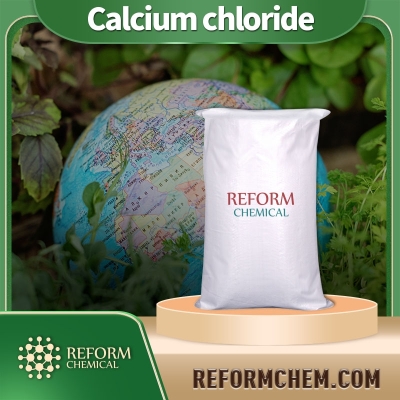-
Categories
-
Pharmaceutical Intermediates
-
Active Pharmaceutical Ingredients
-
Food Additives
- Industrial Coatings
- Agrochemicals
- Dyes and Pigments
- Surfactant
- Flavors and Fragrances
- Chemical Reagents
- Catalyst and Auxiliary
- Natural Products
- Inorganic Chemistry
-
Organic Chemistry
-
Biochemical Engineering
- Analytical Chemistry
-
Cosmetic Ingredient
- Water Treatment Chemical
-
Pharmaceutical Intermediates
Promotion
ECHEMI Mall
Wholesale
Weekly Price
Exhibition
News
-
Trade Service
Sodium carbonate, also known as washing soda, is a commonly used chemical in the chemical industry.
It is used in various applications, such as in the production of soap, paper, and detergents.
The production process of sodium carbonate is a multi-step process that involves several chemical reactions.
- Brine reaction
The first step in the production of sodium carbonate is the brine reaction.
In this reaction, sodium chloride is dissolved in water to form a saturated brine solution.
The brine solution is then treated with carbon dioxide gas to produce sodium bicarbonate. - Esterification reaction
The next step in the production of sodium carbonate is the esterification reaction.
In this reaction, the sodium bicarbonate produced in the previous step is treated with an alcohol, such as methanol or ethanol.
The reaction produces an alkali metal carbonate, which is then hydrolyzed to produce sodium carbonate. - Neutralization reaction
The final step in the production of sodium carbonate is the neutralization reaction.
In this reaction, the alkali metal carbonate produced in the previous step is treated with an acid, such as sulfuric acid or hydrochloric acid.
The reaction produces sodium carbonate and the acid used in the reaction. - Crystallization
The resulting sodium carbonate solution produced in the neutralization reaction is then filtered and the crystals are isolated by crystallization.
The crystals are then dried and ground to the desired particle size.
The production process of sodium carbonate is a well-established and widely used process in the chemical industry.
The purity of the final product can be controlled by adjusting the reaction conditions, such as temperature, pressure, and the use of catalysts.
The process can also be modified to produce different grades of sodium carbonate, depending on the intended use.
Sodium carbonate is a versatile chemical that is used in a wide range of applications.
Its uses include:
- As a cleaning agent in the production of detergents and soap
- In the paper industry as a papermaking aid and as a strengthening agent in paper
- In the textile industry as a bleaching and finishing agent
- As a component of pH control agents in swimming pool water
- In the food industry as a food additive, as a leavening agent in baking powder, and as a buffering agent in processed cheese
Overall, the production process of sodium carbonate is a multi-step process that involves several chemical reactions.
The resulting product is a versatile chemical that is used in a wide range of applications in the chemical industry.
Its uses include as a cleaning agent, in the paper industry, in the textile industry, in the food industry, and in other industries.
The process can be modified to produce different grades of sodium carbonate, depending on the intended use.







